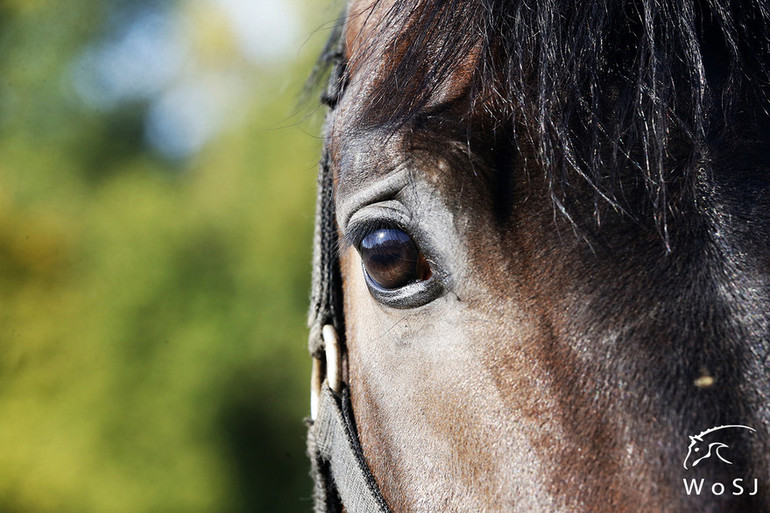Last week, the FEI published the third and final part of the report into the 2021 outbreak of the neurological form of Equine Herpes Virus (EHV-1) in mainland Europe.
A press release from the FEI about the third part of the report reads:
"This concluding part of the Report focuses on further risk mitigation against EHV-1, including conclusions from the EHV-1 vaccination review presented at the FEI Sports Forum on 26 April 2022.
The suggested way forward is the central theme for this part of the Report, including specifically whether or not mandatory vaccination should be proposed by the FEI, and the importance of enhanced biosecurity measures.
Part 3 also incorporates significant feedback from the FEI Veterinary Epidemiology Working Group and the FEI Veterinary Committee, and information on two relevant reports from the European Food Safety Authority (EFSA).
Although not unanimous, the consensus among the FEI Veterinary Epidemiology Working Group was that there is currently insufficient scientific justification to recommend mandatory vaccination. As current vaccines are also ineffective against the neurological form of EHV-1 – Equine Herpes Myeloencephalopathy (EHM) – it was agreed that further research needs to take place to allow the development of improved vaccines. The Group was strongly in support of stakeholders making their own decisions to vaccinate their horses.
The Group was unanimous in its view that the implementation of enhanced biosecurity measures would be the best financial investment currently, raising the overall standard at FEI Events and also providing horses with protection against other infectious diseases, as well as neurological EHV-1.
Based on this advice, alongside additional feedback from virologists and immunologists and a report commissioned by the FEI from world-renowned equine infectious diseases specialist Professor Lutz Goehring, the FEI Veterinary Committee has concluded that it does not support mandating vaccination, but is fully supportive of enhanced biosecurity measures as the best method of preventing and mitigating outbreaks of EHV-1. The Committee also strongly supports personal choice and stressed that National Federations and stakeholders must have the right to vaccinate their horses against the disease.
The FEI Veterinary Committee believes that, given the current rate of vaccination, limited vaccine supplies and supply chain issues for the distribution of vaccines to some parts of the world, and ongoing research into improved vaccines, global vaccination could only be achieved by the year 2025.
“Today’s publication of the final part of the EHV-1 Report is a significant milestone as it marks the end of an important – and very sad – chapter in the history of our community, but a chapter from which we have all learned so much”, said FEI Veterinary Director Dr Göran Åkerström, co-author of the full Report together with Grania Willis, former FEI Communications Director and now Executive Consultant to the FEI.
“But it also marks a new beginning, as the way forward detailed in our Report is based on those lessons learned and it is gratifying to see that the second of two recent European Food Safety Authority reports commissioned by the European Union effectively endorses the FEI’s protocols to protect our horses from infectious disease, and particularly EHV-1. It is good to know that we are ticking virtually all the EU boxes and we will continue to work together with our community to ensure that we maintain the highest possible level of biosecurity at all FEI Events.”
FEI President Ingmar De Vos sees today’s publication as an opportunity to express his thanks to the FEI Family. “So many individuals and so many organisations generously gave so much of their time and financial resources to help us all get through this crisis, both physically on the ground with the affected horses and from an administrative and logistical perspective, both at the time of the outbreak and in the months since”, he said.
“It is impossible to name them all, but to everyone involved, I would like to offer a massive thank you. Tragically there were horses lost to the virus, but without that incredible community-wide support I believe the outcome could have been very different. It is important that we now have much stronger biosecurity measures in place and a clear way forward mapped out which offers the best possible protection against infectious disease outbreaks for the future.”
Part 1 of the Report, which was published on 28 February 2022, provides a forensic review of the outbreak, including the series of events, causes, roles and responsibilities, and analysis. Part 1 has almost 100 pages of Annexes.
Part 2 of the Report, published on 22 April 2022 together with more than 200 pages of Annexes, covers the biosecurity measures implemented that allowed a safe return to competition following the six-week FEI-imposed lockdown on international sport in Continental Europe. Additionally, Part 2 looks at the EHV-1 By-Laws and sanctioning system, the elements subsequently incorporated into the FEI Veterinary Regulations 2022, and concludes with a series of key recommendations.
The full Report, including today’s final part, is available here."









